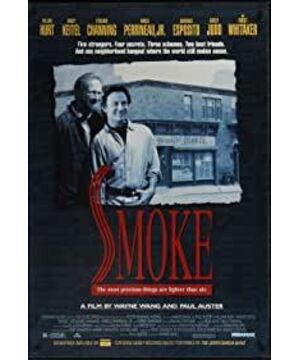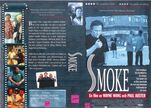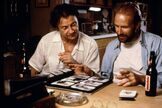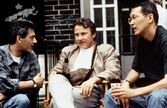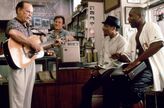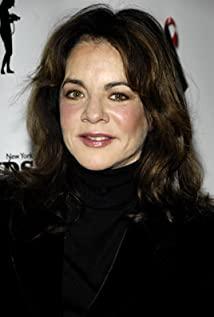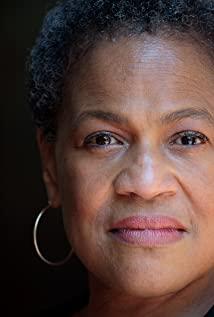In the last scene, Augie and Paul are sitting in a dining room for dinner. After explaining the background of the screen, only Augie's face is left in the close-up. At the end of the film, Augie dictated one of his stories to the camera. It's like Paul Oster is reading one of his novels to you. I have to admit that the picture in this scene is dull, but at the same time we are attracted by Augie's story. What is even more surprising is that at the real end, along with the music, the story dictated by Augie is reproduced in black and white. Unexpected processing methods, text narrative and video narrative are presented one after another, and the information obtained by the audience is double supplemented and confirmed in two different narrative languages. I think this is the biggest surprise brought to us by the joint production of Paul Oster as a writer and Wang Ying as a director.
I like the bright white tone of the film, the white express train that runs between Brooklyn and New York, and the faint sadness and joy in the streets of New York where there is no cloud or blue sky. The character dialogue is impeccable, there is no evil, no bad people, only the daily lives of men.
View more about Smoke reviews


